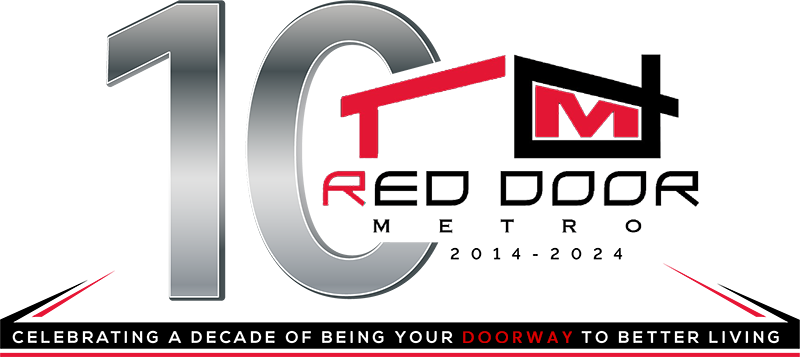What is an appraisal?
-
A written justification of the price paid for a property, primarily based on an analysis of comparable sales of similar homes nearby.
What are comparables or “comps”?
-
Recently sold properties that are similar in size, location, and amenities to a home that is for sale are considered “comps”. You may hear this word when an appraiser or Realtor is helping to determine the fair market value of a property.
What is a “Clear title”?
-
A title that is free of liens or legal questions as to ownership of the property.
How much can I expect to pay for closing costs?
-
Generally 2 to 5% of the purchase price, this can include lender fees, recording fees, transfer taxes, third-party fees such as title insurance, and prepaids and escrows such as homeowner’s insurance, property taxes, and HOA fees.
What is a Closing Disclosure or “CD”?
-
A document that provides an itemized listing of the funds that were paid or disbursed at closing. The CD will provide totals for the seller’s net proceeds and the buyer’s net payment at closing.
What is a contingency?
-
A condition that must be met before a contract is legally binding. For example, home purchasers often include a contingency that specifies that the contract is not binding until the purchaser obtains a satisfactory home inspection report from a qualified home inspector.
What is the difference between a deposit and a down payment?
-
A deposit, often referred to in real estate as an “earnest money deposit” or “EMD” is a dollar amount buyers put into an escrow account after a seller accepts their offer. Buyers do this to show the seller that they’re entering a real estate transaction in good faith. A down payment, on the other hand, is the part of the purchase price of a property that the buyer pays in cash and does not finance with a mortgage. An earnest money deposit is applied at closing to the down payment or other amounts due at closing.
What is equity?
-
A homeowner’s financial interest in a property. Equity is the difference between the fair market value of the property and the amount still owed on its mortgage and other liens.
How can I build equity into my house?
-
There are 3 ways to build equity into your home. The first (and easiest) is from market appreciation. Second, when making your monthly mortgage payment, try to send a little extra. This will go directly to the principal of the loan, rather than the interest. Be sure your mortgage company knows to put the extra toward principal, and not the next month’s payment. Even an extra $50 per month can quickly build equity, as well as knock years off of your loan. The final way to build equity into your house is to make improvements. There are a variety of ways to remodel and make positive changes to the interior and exterior of your home. One of the best ways is to add square footage/living space.
What is an escalation clause?
-
A document that will attach to your offer to purchase contract In a competitive seller’s market you may need to increase your offer price to make your offer more appealing to a seller. The escalation clause will outline how much more you are willing to pay than the other buyers and the maximum amount (your limit). For example, your offer price is $100,000 but you think there are others that may offer more. You could state in your escalation clause that you are willing to pay $1,000 more than the highest written offer (net total) and up to $105,000. The escalated amount and the maximum amount are decided by you at the time of your offer.
What is an escrow account?
-
Your loan agreement with your lender will often include an escrow account. Funds above and beyond the principal and interest portion of your mortgage payment are put into one of these accounts. The extra money is held by your lender for the payment of items like property taxes and homeowner’s insurance when they come due. The lender pays them with your escrow funds instead of you paying them yourself.
What is a home inspection?
-
A thorough inspection by a professional that evaluates the structural and mechanical condition of a property. A satisfactory home inspection is often included as a contingency by the purchaser. Home inspections are required if you plan on financing your home with an FHA or VA loan
What does HOA stand for?
-
Homeowner’s Association. An HOA is an association that manages the common areas of a planned unit development (PUD) or condominium project. Homeowner’s and Condominium Associations have rules and regulations. Make sure you are willing to abide by these, as there may be a penalty or fine associated with non-compliance.
What is the difference between homeowner’s insurance and a homeowner’s warranty?
-
Homeowner’s insurance is an insurance policy that combines personal liability insurance and hazard insurance coverage for a dwelling and its contents. A homeowner’s warranty on the other hand, is a type of insurance often purchased by home buyers that will cover repairs to certain items, such as heating or air conditioning, should they break down within the coverage period. The buyer can request the seller to pay for this coverage as a condition of the sale, but either party can pay.
What is a pre-approval?
-
A loosely used term which is generally taken to mean that a borrower has completed an application and provided basic information about how much money they owe, their income sources and how much they have saved. This information has been reviewed by an underwriter and they are approved. The property being purchased must also meet underwriting guidelines as well. There may still be conditions to the lender funding the loan.


